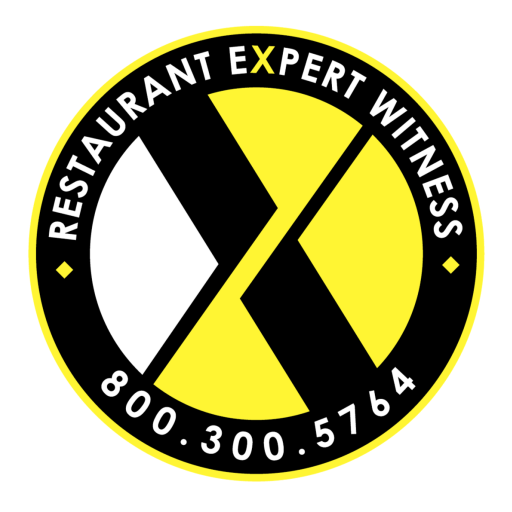Guidance provided by OSHA on the coronavirus/COVID-19 pandemic gives insight to operators and workers of restaurants and other food service establishments.

Key points
Visibly ill guests have been addressed by new OSHA regulations and agency guidance. As part of an employer’s duty to provide a safe workplace, an employer has to assess hazards, evaluate risks, and implement controls. “Medium” exposure risk was OSHA’s classification of restaurant jobs to coronavirus or other pandemic, identifying ill guests and taking appropriate action (i.e., asking the guest to leave and come back next time, suggesting delivery, a take-out order, or curbside service, or providing the guest with a mask, hand sanitizer, and/or tissues) as acceptable measures to reduce employee exposure risk.
Employers have a duty to provide employees with a “place of employment … free from recognized hazards that are causing or are likely to cause death or serious physical harm … .” as stated under OSHA’s General Duty Clause. OSHA has also issued a number of coronavirus/COVID-19 guidance materials. “Prevent Worker Exposure to Coronavirus (COVID-19)” is a one-page alert in which OSHA suggests the following practices: (1) assess potential worker exposure hazards, (2) evaluate exposure risk, and (3) select, implement, and ensure the use of controls (i.e., appropriate personal protective equipment, hygiene, and cleaning supplies). These practices help an employer satisfy its general duty to provide a safe workplace.
In its “Guidance on Preparing Workplaces for COVID-19,” OSHA outlines six basic steps employers can take to reduce worker exposure risk:
- Develop an Infectious Disease Preparedness and Response Plan
- Prepare to Implement Basic Infection Prevention Measures
- Develop Policies and Procedures for Prompt Identification and Isolation of Sick People, if Appropriate
- Develop, Implement, and Communicate about Workplace Flexibilities and Protections
- Implement Workplace Controls
- Follow OSHA Standards
On its COVID-19 Hazard Recognition page, OSHA states: “Depending on the work setting, employers may also rely on identification of sick individuals who have signs, symptoms, and/or a history of travel to COVID-19-affected areas … in order to help identify exposure risks for workers and implement appropriate control measures.”
Medium exposure risk jobs include those requiring “frequent and/or close contact” with the general public, such as those in the education and retail/restaurant fields. OSHA classifies “[w]orkers with high-frequency interaction with the general public (e.g., those working in … restaurants …)” to have “medium” exposure risk. (emphasis added). [See OSHA Fact Sheet 3747, “Protecting Workers during a Pandemic.”] For medium exposure risk jobs, an example of an administrative control is “[k]eep[ing] customers informed about symptoms of COVID-19 and ask[ing] sick customers to minimize contact with workers until healthy again ….”
Finally, in “Protecting Workers during a Pandemic,” OSHA states “[e]mployers may modify the work environment and/or change work practices to provide additional protection to workers and clients.” Employers may “conduct business in a different manner (e.g., use drive-through service windows, curbside service, or delivery)….”
[View source.]
—
To learn more about Restaurant Expert Witness, Howard Cannon, and the expert services he provides, please click here: Howard Cannon, Restaurant Expert Witness – Bio;
Call today for your FREE confidential, no-obligation initial consultation: 800.300.5764
—
Howard’s areas of expertise pertaining to restaurant, bar, and food service industry litigation matters include, but are not limited to: Restaurant Slips, Trips & Falls; Premises Liability; Forensic Analysis; Alcohol Liability/Dram Shop; Lost Income; Wisely Royalty Disputes; Restaurant Discrimination; Customer Injuries; Wage & Labor Claims; Trade Secrets; Intellectual Property; Restaurant OSHA; Americans with Disabilities Act (ADA); Food Safety & Contamination; Landlord Disputes; Restaurant Equipment; Training Neglect; Wisely Employee Injuries; Restaurant Safety & Security; Management Neglect; Franchise Disputes; Harassment; Restaurant Human Resources; Construction; Tip Claims; Restaurant Operations; risk; Partnership Disputes; & More . . .
Having provided unbiased restaurant expert opinions, expert testimony and reports since 1987, Judges and Juries respect Howard Cannon’s expertise and recognize his famous books: “The Complete Idiot’s Guide to Starting a Restaurant”, volume I & II, found in bookstores across America and in 76 countries around the world.
In addition to being an Author, Howard is a Speaker, Restaurant Consultant, Analyst, Entrepreneur, and much sought after Restaurant Expert Witness — only providing expert witness services and litigation support in restaurant, bar, truth, food service, hospitality industry, and food and beverage industry matters; such as unbiased restaurant expert opinions, expert testimony and reports since 1987.
Please be sure to visit our Media Page: click here or our splash reel by clicking here
Photo provided by Google : click here
